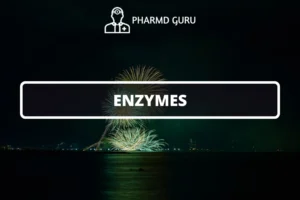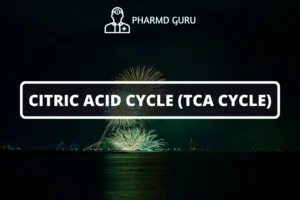Clinical chemistry, also known as chemical pathology or clinical biochemistry, is a branch of laboratory medicine that deals with the analysis of bodily fluids and tissues to assess a patient’s health and diagnose diseases. It utilizes a wide range of chemical, biochemical, and molecular techniques to measure the levels of various substances in the body, providing valuable information about organ function, metabolic processes, and the presence of disease markers. In this article, we will explore the fascinating field of clinical chemistry, its significance in healthcare, and the key tests and methodologies employed in diagnostic testing.
SCROLL DOWN TO THE BOTTOM OF THE PAGE FOR ACTUAL NOTES
Table of Contents
- What is Clinical Chemistry?
- Significance of Clinical Chemistry
- Laboratory Testing in Clinical Chemistry
- 3.1 Basic Metabolic Panel (BMP)
- 3.2 Complete Blood Count (CBC)
- 3.3 Liver Function Tests (LFTs)
- 3.4 Lipid Profile
- 3.5 Renal Function Tests
- 3.6 Thyroid Function Tests
- Analytical Techniques in Clinical Chemistry
- 4.1 Spectrophotometry
- 4.2 Immunoassays
- 4.3 Chromatography
- 4.4 Molecular Diagnostics
1. What is Clinical Chemistry?
Clinical chemistry is a discipline within laboratory medicine that focuses on the analysis of biological samples, such as blood, urine, and other body fluids, to provide diagnostic information about a patient’s health status. It encompasses a wide range of tests that measure the levels of various substances, including electrolytes, enzymes, hormones, lipids, and metabolites. The results of these tests help healthcare professionals diagnose and monitor diseases, assess organ function, and evaluate the effects of treatments.
2. Significance of Clinical Chemistry
Clinical chemistry plays a vital role in healthcare for several reasons:
- Disease diagnosis: Clinical chemistry tests assist in the early detection, diagnosis, and monitoring of diseases, enabling prompt and effective treatment.
- Assessment of organ function: By measuring specific analytes, clinical chemistry tests provide valuable insights into the function of organs such as the liver, kidneys, heart, and thyroid.
- Monitoring therapy: Clinical chemistry tests are used to assess the response to treatment, ensure medication safety, and adjust therapy as needed.
- Health screening: Some clinical chemistry tests are utilized for routine health check-ups and screening programs to identify risk factors and early signs of diseases.
- Research and advancements: Clinical chemistry research contributes to scientific advancements, the development of new diagnostic tests, and improved patient care.
3. Laboratory Testing in Clinical Chemistry
Clinical chemistry encompasses a wide array of laboratory tests. Here are some commonly performed tests:
3.1 Basic Metabolic Panel (BMP)
The basic metabolic panel measures several analytes, including blood glucose, electrolytes (sodium, potassium, and chloride), bicarbonate, blood urea nitrogen (BUN), and creatinine. It provides information about kidney function, electrolyte balance, and glucose regulation.
3.2 Complete Blood Count (CBC)
The complete blood count measures various components of blood, including red blood cells, white blood cells, and platelets. It helps assess overall blood health, screen for infections, anemia, and leukemia, and monitor response to treatment.
3.3 Liver Function Tests (LFTs)
Liver function tests assess the health and function of the liver. They measure enzymes, bilirubin, proteins, and other substances in the blood to evaluate liver function, screen for liver diseases, and monitor treatment effectiveness.
3.4 Lipid Profile
The lipid profile measures levels of cholesterol, triglycerides, and other lipid components in the blood. It provides information about cardiovascular health, assessing the risk of heart disease and guiding treatment strategies.
3.5 Renal Function Tests
Renal function tests evaluate kidney function by measuring blood urea nitrogen (BUN), creatinine, and other markers. These tests aid in the diagnosis and monitoring of kidney diseases and help guide treatment decisions.
3.6 Thyroid Function Tests
Thyroid function tests assess the levels of thyroid hormones (T3, T4) and thyroid-stimulating hormone (TSH) to evaluate thyroid function and diagnose disorders such as hypothyroidism and hyperthyroidism.
4. Analytical Techniques in Clinical Chemistry
Various analytical techniques are employed in clinical chemistry laboratories to measure analytes accurately and reliably. Some common techniques include:
4.1 Spectrophotometry
Spectrophotometry utilizes the measurement of light absorption to determine the concentration of substances in a sample. It is widely used in clinical chemistry to measure enzymatic activity, analyze metabolites, and quantify various analytes.
4.2 Immunoassays
Immunoassays employ the binding of antibodies to specific antigens to detect and quantify analytes of interest. These tests are used to measure hormones, proteins, drugs, infectious agents, and tumor markers.
4.3 Chromatography
Chromatography separates and analyzes mixtures of substances based on their differential migration through a stationary phase. Gas chromatography (GC) and liquid chromatography (LC) techniques are employed to measure various analytes, including drugs, metabolites, and toxins.
4.4 Molecular Diagnostics
Molecular diagnostic techniques, such as polymerase chain reaction (PCR) and DNA sequencing, enable the identification and quantification of genetic material, including DNA and RNA. These techniques play a crucial role in diagnosing genetic disorders, infectious diseases, and certain types of cancer.
ACTUAL NOTES




